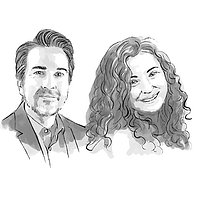Why the happiest countries are not always the wealthiest ones
Loading...
“Happiness is having your own summer cottage and a potato field.”
Or at least that’s how a Finnish saying defines happiness. And the Finns are clearly onto something with Finland ranking first in the 2018 World Happiness Report (WHR) released in March, although their ranking likely has more to do with trust in national systems and a healthy work-life balance than potatoes and cottages.
Over the past few decades, policymakers, businesses, and others are increasingly looking to measures of well-being as an indicator of progress. Considered a “fundamental human goal” by the United Nations, the organization has released an annual WHR since 2012. Of the 35 countries that are members of the Organization for Economic Cooperation and Development (OECD), all but one now collect some data on well-being as part of their national statistics. The United Arab Emirates even has a minister of state for happiness.
A push to study well-being came out of frustration with the limitations of gross domestic product, the global standard measure of growth, economists say. In fact, the happiest countries, the WHR consistently finds, don’t perfectly line up with the wealthiest ones. The United States, for example, dropped four spots to No. 18 in this year’s report, in part because of weakening social support systems.
“On the policy front, we have the nagging feeling that growth for the sake of growth is not translating into human well-being,” says University of Oxford economist Jan-Emmanuel De Neve, an associate editor of the WHR.
The WHR depends upon the Gallup World Poll, which includes questions about social support (“If you were in trouble, do you have relatives or friends you can count on to help you whenever you need them, or not?”) and freedom to make choices (“Are you satisfied or dissatisfied with your freedom to choose what you do with your life?”). The poll asks people to “measure” their life by envisioning a ladder, ranking their “best possible life” as a 10 and their worst a zero.
“We don’t impose any definition. We let people speak for themselves. And that is actually quite powerful, I think, in and of itself,” says Professor De Neve.
Well-being data allow countries to determine and create conditions for well-being, in sometimes unexpected ways. A decade ago, the Scottish government launched a well-being framework with a vision of a wealthier, fairer, smarter, healthier, safer, stronger, and greener Scotland. Using well-being indicators, the government made policy decisions, including unifying Scotland’s eight police forces into one.
Well-being data can also better predict certain human behavior. In the lead-up to the Arab Spring, for example, well-being was a better indicator of regional unrest than economic growth. The “Brexit” vote, the election of President Trump, and other populist waves can be understood when seen through the lens of well-being, too, says De Neve.
In terms of migration policy, well-being measures offer an obvious way to assess the success of migration, a focus of the 2018 WHR, says John Helliwell, a Canadian economist and the editor of the report. Migrants end up roughly as happy as the population in the countries they migrate to, which suggests that one’s happiness can change depending on the quality of one’s community.
“You can’t take a billion people and drop them all in Helsinki and Copenhagen.... You then have to say, ‘What is it about those countries that make them good places to live?’... It isn’t that you just have to get Norwegian oil and Danish high tech, and Helsinki communications. It’s not about that. It’s about the way ... people think of each other, help each other, and treat each other. And that, of course, can be improved anywhere.”
Mr. Helliwell sees evidence of well-being measures trickling down to cities and workplaces.
In Boston, city managers created the “CityScore” in 2016 to track well-being, including residents’ sense of safety. After a drop in the safety metric, the city identified an unlikely culprit: the length of time it took to install and maintain city signs. Addressing the backlog restored the well-being metric to its previous level.
“If you really took the well-being of everyone seriously ... you would be more inclined to give people the rope to make mistakes, to learn together, [and] to play together,” says Helliwell.








